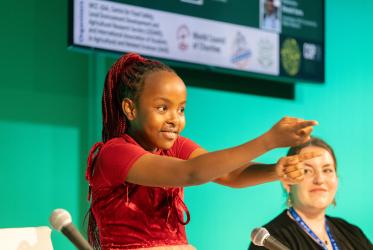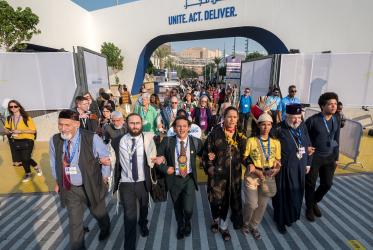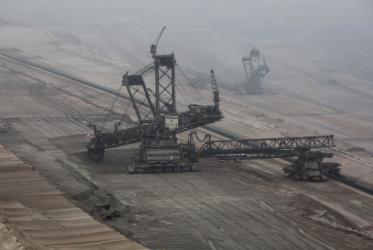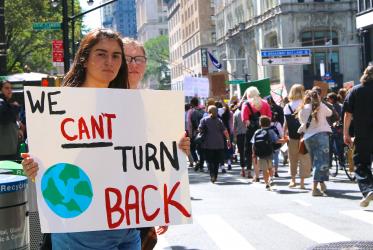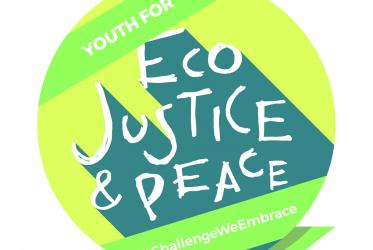Displaying 1 - 20 of 29
How racism and colonialism are exacerbating impacts of climate change
29 September 2021
As Season of Creation closes, climate work is just beginning
02 October 2019
Interfaith Rainforest Initiative expands
12 February 2019
Learning exchange focuses on human rights among indigenous people
06 December 2018
Voices from Colombia: “What if we have no land to till?”
15 February 2018
2018 Lenten campaign “Seven Weeks for Water” begins in Colombia
15 February 2018
Seven weeks of Lent highlight water justice in Latin America
12 February 2018
Plans for 2017 decided by WCC Executive Committee
01 December 2016
